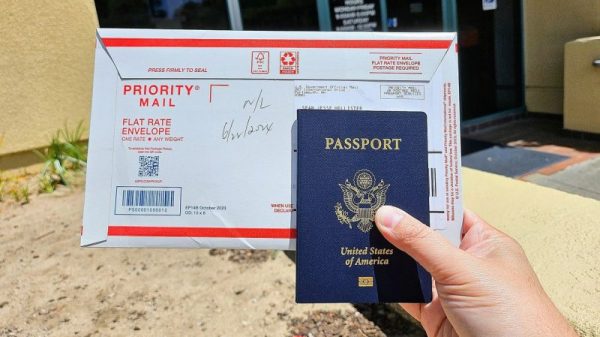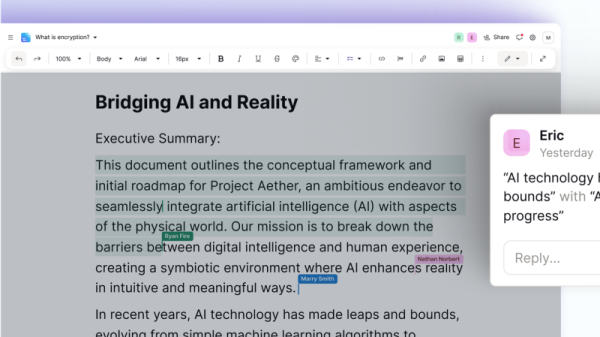Early in a tense hearing Wednesday featuring FBI Director Christopher A. Wray, Rep. Ken Buck (R-Colo.) tried to lighten the mood. Amid growing attacks by Republicans on Wray, he noted that Wray had been nominated to his current post and also a previous post by Republican presidents. “According to Wikipedia, you’re still a registered Republican,” Buck said, “and I hope you don’t change your party affiliation after this hearing is over.”
Wray, too, repeatedly leaned into his Republican bona fides.
“Yes, I think there were only five votes against,” he said of his 2017 confirmation as FBI director, “and they were all from Democrats.”
Later in the House Judiciary Committee hearing, he told a Republican congresswoman of GOP allegations against him: “The idea that I’m biased against conservatives seems somewhat insane to me, given my own personal background.”
The exchanges highlighted the paradox of Wray’s suddenly becoming Public Enemy No. 1 to congressional Republicans, as they press conspiratorial and highly speculative allegations about the purported weaponization of federal law enforcement.
And while the Trump-nominated FBI director was characteristically even-tempered in his testimony, there were times in which his exasperation at his predicament came to the surface — and in which he showed his critics some teeth.
Multiple Republicans peppered Wray with questions about whether FBI agents or sources were present on Jan. 6 during the attack on the Capitol — feeding a still baseless Tucker Carlson-fueled conspiracy theory that the FBI might have played a role in the insurrection.
Wray at one point remarked: “I will say this notion that somehow the violence at the Capitol on Jan. 6 was part of some operation by FBI sources and agents is ludicrous and is a disservice to our brave, hard-working, dedicated men and women.”
When Rep. Mike Johnson (R-La.) pressed Wray on the government’s efforts to crack down on misinformation and mentioned the covid lab-leak theory, Wray took exception.
He called it “ironic” and “somewhat absurd” to suggest the FBI was suppressing the lab-leak theory, because the FBI was once “the only agency in the entire intelligence community” to assess that as being the most likely origin for the virus, back in 2021.
“Insane.” “Ludicrous.” “Ironic.” “Absurd.” All words used to describe theories promoted by Wray’s fellow Republicans.
Wray at other points more subtly pushed back on such allegations.
Republicans continued to allege that the FBI’s search of Donald Trump’s residence at Mar-a-Lago to recover classified documents Trump had withheld was overzealous. And Wray stuck to long-standing FBI policy of not commenting on ongoing cases.
But at one point, he did lean in. When a Democrat asked whether it would be appropriate to keep such documents in bathrooms, ballrooms and bedrooms, Wray responded somewhat bitingly — while qualifying that he was only speaking generally.
“I will say there are specific rules about where to store classified information and that those need to be stored in a SCIF, a secure, compartmentalized information facility,” Wray said. “And in my experience, ballrooms, bathrooms and bedrooms are not SCIFs.”
Wray easily could have begged off the question as obviously referring to a specific case, but he didn’t.
Speaking of that policy against commenting on ongoing criminal matters, Rep. Matt Gaetz (R-Fla.) tried to get Wray to weigh in on specific evidence involving Hunter Biden — and then pretended it was suspicious when Wray punted.
“You seem deeply incurious about it, don’t you? Almost suspiciously,” Gaetz maintained — again, despite Wray’s wholly unsurprising answer. “I’m curious: Are you protecting the Bidens?”
Wray responded “absolutely not.” After Gaetz proceeded to suggest Wray might have committed perjury in previous testimony and attached all of it to the decline in trust in the FBI, Wray got more animated and invoked Gaetz’s home state.
“Respectfully, Congressman, in your home state of Florida, the number of people applying to come work for us and devote their lives working for us is over 100 percent,” Wray said. He later made a similar comment after a long monologue against the FBI by a Texas congressman.
Wray again got somewhat personal during an exchange with Rep. Chip Roy (R-Tex.). Roy invoked a “tyrannical” FBI and cited armed agents showing up to arrest a conservative activist who was charged with a crime but later acquitted. Wray rejected the T-word and the idea that anyone was arrested at “gunpoint,” as Roy said.
Then Wray added: “Whenever our agents conduct an arrest, they’re armed. Our agents are armed virtually all the time, as you may remember from your own experience as a prosecutor.”
And when Rep. Thomas Massie (R-Ky.) pressed Wray on his not commenting on ongoing matters, Wray noted that “the last administration actually strengthened those policies.”
None of it was terribly heated, and Wray clearly didn’t want to give the likes of Gaetz the angry Fox News-friendly exchange that Gaetz sought. But it was also clear that Wray increasingly recognizes that the reason many Americans — mostly his fellow Republicans — have soured on the FBI is the often-flimsy theories he was confronted with, also by his fellow Republicans.
At Wednesday’s hearing, he subtly took aim at this “somewhat insane” set of circumstances.
“Some people refer to me as low-key,” Wray said toward the end of the hearing, “But no one should ever mistake my demeanor for what my spine is made out of.”
Early in a tense hearing Wednesday featuring FBI Director Christopher A. Wray, Rep. Ken Buck (R-Colo.) tried to lighten the mood. Amid growing attacks by Republicans on Wray, he noted that Wray had been nominated to his current post and also a previous post by Republican presidents. “According to Wikipedia, you’re still a registered Republican,” Buck said, “and I hope you don’t change your party affiliation after this hearing is over.”
Wray, too, repeatedly leaned into his Republican bona fides.
“Yes, I think there were only five votes against,” he said of his 2017 confirmation as FBI director, “and they were all from Democrats.”
Later in the House Judiciary Committee hearing, he told a Republican congresswoman of GOP allegations against him: “The idea that I’m biased against conservatives seems somewhat insane to me, given my own personal background.”
The exchanges highlighted the paradox of Wray’s suddenly becoming Public Enemy No. 1 to congressional Republicans, as they press conspiratorial and highly speculative allegations about the purported weaponization of federal law enforcement.
And while the Trump-nominated FBI director was characteristically even-tempered in his testimony, there were times in which his exasperation at his predicament came to the surface — and in which he showed his critics some teeth.
Multiple Republicans peppered Wray with questions about whether FBI agents or sources were present on Jan. 6 during the attack on the Capitol — feeding a still baseless Tucker Carlson-fueled conspiracy theory that the FBI might have played a role in the insurrection.
Wray at one point remarked: “I will say this notion that somehow the violence at the Capitol on Jan. 6 was part of some operation by FBI sources and agents is ludicrous and is a disservice to our brave, hard-working, dedicated men and women.”
When Rep. Mike Johnson (R-La.) pressed Wray on the government’s efforts to crack down on misinformation and mentioned the covid lab-leak theory, Wray took exception.
He called it “ironic” and “somewhat absurd” to suggest the FBI was suppressing the lab-leak theory, because the FBI was once “the only agency in the entire intelligence community” to assess that as being the most likely origin for the virus, back in 2021.
“Insane.” “Ludicrous.” “Ironic.” “Absurd.” All words used to describe theories promoted by Wray’s fellow Republicans.
Wray at other points more subtly pushed back on such allegations.
Republicans continued to allege that the FBI’s search of Donald Trump’s residence at Mar-a-Lago to recover classified documents Trump had withheld was overzealous. And Wray stuck to long-standing FBI policy of not commenting on ongoing cases.
But at one point, he did lean in. When a Democrat asked whether it would be appropriate to keep such documents in bathrooms, ballrooms and bedrooms, Wray responded somewhat bitingly — while qualifying that he was only speaking generally.
“I will say there are specific rules about where to store classified information and that those need to be stored in a SCIF, a secure, compartmentalized information facility,” Wray said. “And in my experience, ballrooms, bathrooms and bedrooms are not SCIFs.”
Wray easily could have begged off the question as obviously referring to a specific case, but he didn’t.
Speaking of that policy against commenting on ongoing criminal matters, Rep. Matt Gaetz (R-Fla.) tried to get Wray to weigh in on specific evidence involving Hunter Biden — and then pretended it was suspicious when Wray punted.
“You seem deeply incurious about it, don’t you? Almost suspiciously,” Gaetz maintained — again, despite Wray’s wholly unsurprising answer. “I’m curious: Are you protecting the Bidens?”
Wray responded “absolutely not.” After Gaetz proceeded to suggest Wray might have committed perjury in previous testimony and attached all of it to the decline in trust in the FBI, Wray got more animated and invoked Gaetz’s home state.
“Respectfully, Congressman, in your home state of Florida, the number of people applying to come work for us and devote their lives working for us is over 100 percent,” Wray said. He later made a similar comment after a long monologue against the FBI by a Texas congressman.
Wray again got somewhat personal during an exchange with Rep. Chip Roy (R-Tex.). Roy invoked a “tyrannical” FBI and cited armed agents showing up to arrest a conservative activist who was charged with a crime but later acquitted. Wray rejected the T-word and the idea that anyone was arrested at “gunpoint,” as Roy said.
Then Wray added: “Whenever our agents conduct an arrest, they’re armed. Our agents are armed virtually all the time, as you may remember from your own experience as a prosecutor.”
And when Rep. Thomas Massie (R-Ky.) pressed Wray on his not commenting on ongoing matters, Wray noted that “the last administration actually strengthened those policies.”
None of it was terribly heated, and Wray clearly didn’t want to give the likes of Gaetz the angry Fox News-friendly exchange that Gaetz sought. But it was also clear that Wray increasingly recognizes that the reason many Americans — mostly his fellow Republicans — have soured on the FBI is the often-flimsy theories he was confronted with, also by his fellow Republicans.
At Wednesday’s hearing, he subtly took aim at this “somewhat insane” set of circumstances.
“Some people refer to me as low-key,” Wray said toward the end of the hearing, “But no one should ever mistake my demeanor for what my spine is made out of.”























